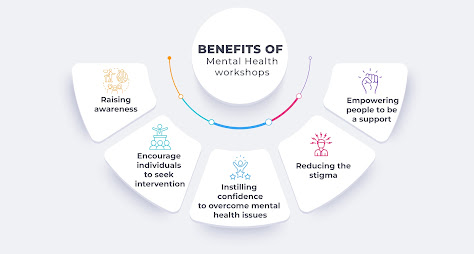Underprivileged youth and mental health challenges
Introduction
Did you know that over 50% of Indian Youth today are facing challenges with their mental health? [1] Research strongly supports that mental health issues have a significant impact on social and economic outcomes throughout life. The underprivileged youth are more susceptible to mental health issues because of disadvantaged upbringing, exposure, and thought processes.
In most instances, the burden associated with common mental disorders rises in childhood and peaks in adolescence and early middle age (10-29).[2] Therefore, early intervention is necessary, but underprivileged youth lack sufficient resources and awareness. In this blog, we will explore the issue and understand the mental health challenges of underprivileged youth.
Mental health and underprivileged youth
There is no denying that mental health challenges impact people disproportionately. Underprivileged youth, as mentioned earlier, are more vulnerable, mainly due to their socioeconomic status. While there could be many disparities, here are the significant ones that increase their susceptibility to mental health challenges.
1) Financial constraints—The foremost reason underprivileged youth suffer is the lack of financial resources. This deprives them of basic resources and instills fear and insecurity about their future.
2) Environment—Their surroundings are sub-optimal. The area may lack basic amenities and be prone to violence and disturbances on a routine basis. Most residents would also be under immense stress, which may lead to an environment that is not conducive or cordial.
3) Education and exposure—They are deprived of good education and exposure, which are needed for a child's holistic development. They may also suffer from a lack of awareness.
4) Access to support – The affluent have the option to access therapy and other kinds of support, whereas the underprivileged, on the other hand, have very little or no support. Besides many of them are not even aware of therapy - its need and its availability.
5) Family and friends – Trying to discuss issues with family members and friends is itself challenging because they barely possess the understanding or maturity to recognize underlying mental health issues. Sometimes, the family dynamics are also problematic.
Awareness is the key
Shailender Swaminathan, the Director of Sapien Labs Centre for the Human Brain and Mind highlighted that data on mental health is scarce because of the stigma associated with it.[3] The stigma is more prevalent among the underprivileged because of a lack of awareness and understanding.
The population of India is dominated by youth, but the treatment gap for mental health disorders in the country, which is as high as 90%, is quite alarming. Thus, the need to educate youth and children about mental health is higher than ever. Workshops and programs related to mental health awareness are essential to address this issue.
Mental health workshops can be helpful in the following ways:
- Raising awareness of mental illness.
- Encouraging individuals to seek early intervention and aid.
- Instilling the confidence and belief to overcome a mental health challenge.
- Reducing the stigma around mental health issues.
- Empowering people to be a support.
How does Udayan Care prioritize mental health?
Mental Health is a focus of every initiative of Udayan Care, be it Udayan Ghar, where we support vulnerable children without parental care, or the Udayan Shalini Fellowship and Udayan Care IT Program, where we equip youth and women from underprivileged backgrounds with industry skills through several workshops and training sessions.
Since 2014, we have been working with Duke University on a research project where the volunteers interview Udayan Ghar and Udayan Shalini Fellowship youth to identify mental health red flags. Through a proprietary set of questions designed by Duke University, they try to identify depression, anxiety, attachment, social relations, self-concept, ego-resiliency, trauma symptoms, parenting-style social role adjustment, and overall life satisfaction. This helps us identify those who need intervention and support.
In addition, we have dedicated health professionals working for the mental health of youth in Udayan Ghar. Dr. Deepak Gupta has fortnightly sessions with a trained clinical psychiatrist to discuss individual cases and plan therapy/support interventions. Ms. Helen Lenga from Australia provides online sessions for our children, young adults, and caregivers.
Furthermore, our Udayan Shalini Fellowship program frequently hosts workshops and programs focused on enhancing mental health literacy, covering critical topics such as Suicide Prevention, Mental Health Awareness, Stress Management, Prioritizing Self-Care, and more.
Conclusion
Despite media coverage, the general public’s understanding and awareness of mental health disparities are inadequate. Young individuals often overlook their mental health, sometimes out of a lack of awareness and sometimes deliberately. It is indispensable to educate children and youth, especially from the underprivileged sections of society, about mental health challenges and psychological well-being. As commonly stated, recognizing the issue is the first step toward finding a solution.
If you are someone who is suffering from mental health issues, please do not hesitate to ask for support. Always remember that early intervention leads to early resolution. If you come across any young person from an underprivileged background, who seems stressed out, reach out and engage with them - you may be throwing a lifeline.



.jpg)
Comments
Post a Comment